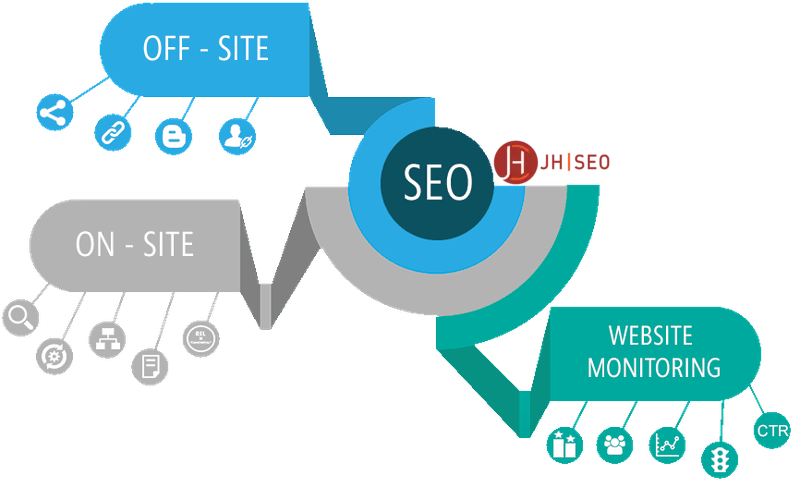In the fast-evolving landscape of digital marketing, understanding and utilizing search engine optimization (SEO) effectively is the difference between your website being found by your target audience or getting lost in the depths of the internet. At the heart of any successful SEO strategy is data — the kind of data that an SEO tracker can provide. But what exactly is an SEO tracker, and why is it integral to your SEO efforts? This comprehensive guide dives deep into the world of SEO tracking, unpacking its importance, types, benefits, selection criteria, and best practices to ensure your content is discoverable and your website’s performance is optimized.
Understanding How SEO Trackers Work
SEO trackers leverage sophisticated technologies to gather, process, and present data in a format that is digestible for SEO professionals and novices alike.
- Data Collection: The first step in the SEO tracking process is the collection of data from search engines using API calls, web scraping, and other methods. This data collection is scheduled at regular intervals to ensure up-to-date information on rankings, keyword performance, and other vital statistics.
- Data Analysis: Once the data is in, the real work begins. The SEO tracker analyzes this data using complex algorithms that factor in various ranking signals and trends. The result is a comprehensive report that highlights your website’s strengths and weaknesses concerning SEO performance.
- Reporting: The final piece of the puzzle is the presentation of the analyzed data. SEO trackers present this information in the form of visualized reports and dashboards, allowing users to glean insights at a glance and make informed decisions about their SEO strategies.
The Nuts and Bolts of SEO Tracking
SEO tracking is the act of monitoring various metrics related to your website’s search engine performance. It’s akin to keeping your finger on the pulse of your digital entity in relation to search engines, particularly the behemoth that is Google. But why is this important? Monitoring rankings in search results pages and keeping a vigil on web traffic derived from organic search is not merely a voyeuristic exercise. It’s essential for the survival and prosperity of your online business. By doing so, you get to:
- Gauge the effect of optimization efforts
- Anticipate or swiftly adapt to algorithm changes
- Pinpoint areas of improvement on your website
- Learn from the strategies of competitors
SEO tracking, at its core, ensures that your efforts are not in vain by providing tangible data that can be used to refine your digital strategy over time.
Identifying Optimization Opportunities
One of the most compelling reasons to use an SEO tracker is the constant scrutiny of what potential site visitors see on the results pages. Knowing where your content ranks for specific keywords provides a portal into the collective mind of the internet. You can identify trends, discover new keywords to improve keyword ranking and adapt your content to stay relevant and searchable.
Tracking Competitors and Trends
The adage “keep your friends close and your enemies closer” resounds in the digital domain just as loudly as it does in business meetings. An SEO tracker enables you to do just that. By monitoring the performance of competitors and the shifts in industry trends, you can stay ahead of the curve and avoid being blindsided by unforeseen market changes.
Measuring the Effectiveness of Your SEO Strategy
In the realm of digital, empirical data is the gold standard when evaluating the effectiveness of your SEO strategy. Trackers provide a granular view of your web presence, allowing you to iron out the kinks in your digital armor and double down on what’s working.
Types of SEO Trackers
SEO tracking is a vast landscape that can be segmented into different tools, each focusing on specific areas of search engine optimization. Here are some of the most common types:
Rank Trackers
At the heart of SEO tracking lies the rank tracker, a tool that monitors your website’s position in the search engine results pages for specific keywords. It is the most direct method for evaluating the visibility of your website in the eyes of searchers.
Website Analytics Tools
Website analytics tools like Google Analytics extend beyond keyword rankings to offer a comprehensive view of website performance. They track metrics such as traffic sources (whether or not it generates organic search traffic), user behavior, and conversion rates, providing a holistic perspective on how your website is faring.
Backlink Checkers
Backlinks remain a prominent ranking factor for search engines. Backlink checkers monitor the quantity and quality of backlinks pointing to your website, enabling you to refine your link-building strategy and improve your site’s authority.
Technical SEO Tools
These tools focus on the nitty-gritty of your website’s technical performance in search engines. They audit aspects like page loading speed, mobile-friendliness, and schema markup implementation, ensuring that your website is optimized to be crawled and indexed efficiently.
Choosing the Right SEO Tracker for Your Business
Selecting the appropriate SEO tracker for your venture can be overwhelming, given the multitude of options available in the market. Here are a few considerations to keep in mind:
- Scalability: Ensure that the tool can grow with your business and doesn’t cap essential features at low-entry pricing tiers.
- Integration: Look for a tool that can seamlessly integrate with your existing digital ecosystem, including web analytics platforms and content management systems.
- Support and Training: A comprehensive onboarding process and robust customer support can make a world of difference, especially for newcomers to the world of SEO tracking.
- Customization: The ability to tailor the tool to your unique business needs can provide a significant advantage in fine-tuning your SEO strategies.
The ROI of SEO Tracker Investment
The final question to address is whether investing in SEO tracking is a wise financial decision. The answer, quite unequivocally, is yes. The insights and optimizations that a robust SEO tracker can provide are immeasurable when it comes to the bottom line of your business.
By identifying and capitalizing on high-yield keywords, troubleshooting site issues that may be impeding visibility, and benchmarking your performance against competitors, an SEO tracker can turn the tides of Digital Darwinism in your favor.
Benefits of Using SEO Trackers
Utilizing an SEO tracker goes beyond simple keyword monitoring — it’s about fine-tuning every aspect of your online presence to resonate with search engines and users alike.
Improved Website Ranking
Consistent tracking of keyword rankings and website performance allows you to identify areas that need improvement and adjust your strategy accordingly, leading to higher rankings.
Enhanced Keyword Optimization
SEO trackers can also suggest alternative keywords based on search volume and competition, enriching your SEO strategy with keywords that may offer better visibility and organic search traffic potential.
Informed Decision-Making
Data-driven decisions are more likely to lead to better SEO performance and SEO success. SEO trackers provide the data you need to make informed choices about your SEO strategy, such as which keywords to prioritize or when to update your content.
How to Choose the Right SEO Tracker
With so many SEO tracking tools available, it can be challenging to select the one that best fits your needs and budget. Here are some considerations to keep in mind.
Considerations: Features, Pricing, Integrations
Before committing to an SEO tracker, define the features you consider essential for your needs. Assess the pricing plans, considering not just the initial cost but any additional charges for features or data. Lastly, explore the integrations with other tools you use, as a robust ecosystem can streamline your workflow.
Popular Tools Comparison
To help you pick the right SEO tracker, compare popular tools like Ahrefs and SEMrush, focusing on their unique features, user-friendliness, and support. Both tools offer comprehensive SEO tracking capabilities but differ in terms of data presentation, update frequency, and customer support quality.
Best Practices for Effective SEO Tracking
Merely having an SEO tracking tool isn’t enough; you need to utilize it effectively to reap the most rewards.
Setting Measurable Goals
Define clear, measurable SEO goals to track your progress effectively. Whether it’s increasing your website’s organic search traffic by a certain percentage or improving your ranking for specific keywords, make sure your goals are granular and quantifiable.
Consistent Monitoring and Analysis
Regularly monitor your SEO tracker to keep a pulse on your website’s performance. This frequency of checking allows you to react quickly to any deviations from your expected performance and to understand the effect of tweaks you make to your SEO strategy.
Implementing Changes Based on Data
The beauty of an SEO tracker is the actionable data it provides. Use this data to make strategic changes to your website, content, and SEO strategy. Whether it’s optimizing for new keywords, improving site speed, or overhauling your content structure, an SEO tracker will guide your way.
SEO trackers are indispensable tools for any business or website owner looking to expand their digital footprint. By understanding the ins and outs of SEO tracking, you can optimize your approach to reach and serve your online audience more effectively. Remember, SEO is a long game, and tracking your progress is as crucial as the strategies you implement. Take your time to choose the right SEO tracker, use it conscientiously, and watch as your efforts translate into improved search rankings and increased organic traffic.
In conclusion, whether you’re a fledgling entrepreneur dipping your toes into the vast ocean of the digital world, or a seasoned marketer looking for new ways to stay ahead, an SEO tracker offers the kind of insights that propel your website towards its full potential. With data at your fingertips and the right SEO tracker in your toolkit, harness the power to transform your online presence into a dynamic force to be reckoned with.



































































































































































































































